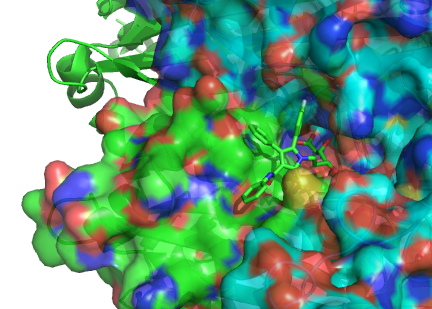Sugar and Our Evolutionary Health
Evolution wants us to do nothing more than eat potato chips and make babies. Our evolutionary history has encouraged us to convert starch into sugar, and sugar into fat, as fast as possible, to feed our giant brains.
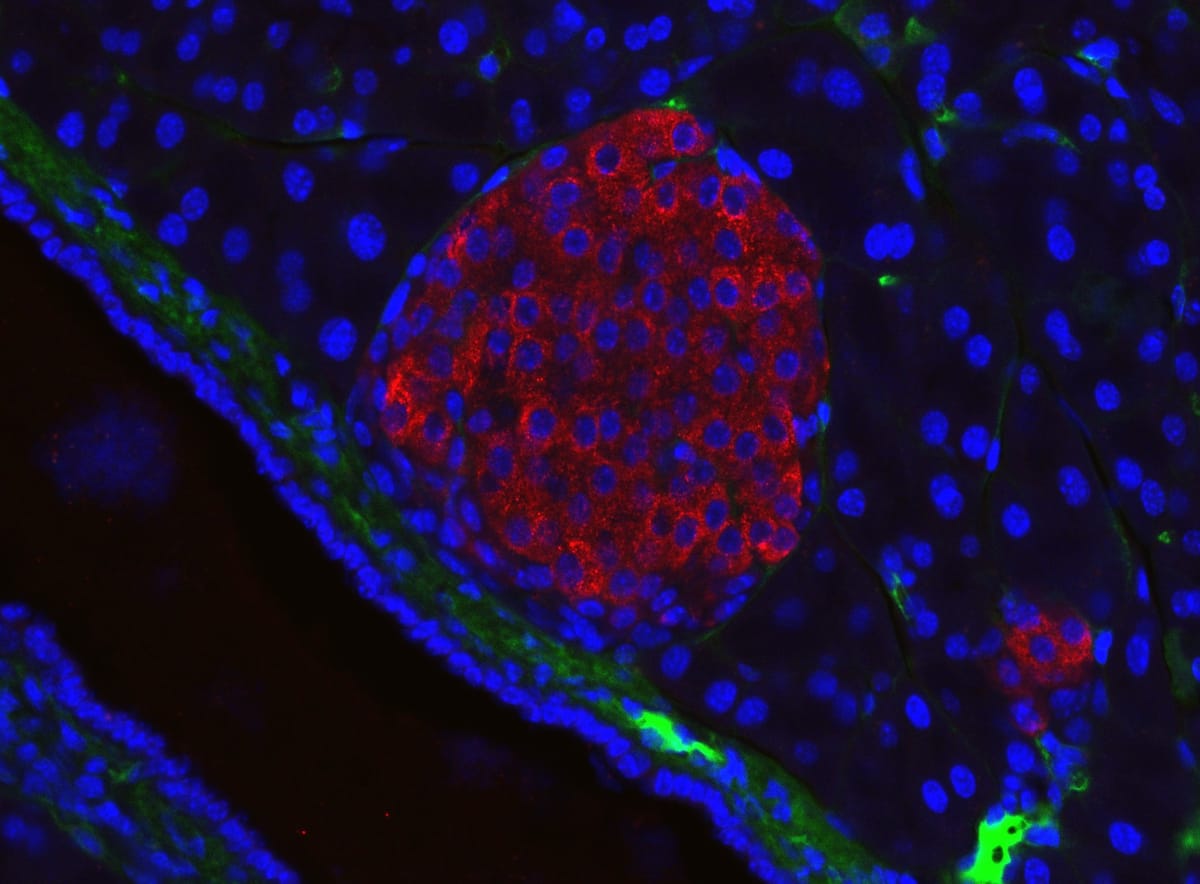
Why Evolution Wants Us to be Fat, Lazy and On the Sofa
Please scroll down for links below the transcript. This is lightly edited AI generated transcript and there may be errors.
Sugar and Our Evolutionary Health
mindbodyevolution
Dr. Josh Stout
Eric 0:05
Today is Friday, February 9th. This is season two, Episode six of Mind Body Evolution. Hi, Josh.
Dr. Josh Stout 0:14
Hi, Eric. I was thinking today of getting a little bit away from the philosophical, mystical side of things that we've been traveling for a while and, you know, gender speculation and all that and getting more towards the direct discussion, the discussing of evolutionary health. And I wonder.
Eric 0:33
I like that idea.
Dr. Josh Stout 0:34
Yeah, I wanted to talk about sugar because it's right at the center of evolutionary health and who we are as as a strange kind of animal and how we interact with the world.
Eric 0:45
It's also very interesting because when we were growing up, you and I, the great evil was fat. Yes. Well, now the great evil is clearly sugar.
Dr. Josh Stout 0:52
It's clearly sugar. The great evil was fat because we didn't want to get fat. But sugar is more like money. And everyone wants money. But money is the root of all evil. And it's because of the desire. And the desire is built in. And money is a pale comparison to the desires related to sugar. But money is just feeding into our symbolic understanding of what we want.
Eric 1:19
Did we ever encounter sugar when we came out of the trees onto the Serengeti.
Dr. Josh Stout 1:24
While before then? I mean, before that sugar. Sugar is everything for everyone. Sugar is the is the thing that sells. Used to make make energy. It is it is the number one molecule that everyone wants. If you're a bacterium, if you're if you're a protest, if you're an amoeba, everyone wants sugar. You know, I knew people who are working with aquaculture. And when you when you first start a a a project, you need your filter to actually have things living in it so you can start de nitrification processes. And so they were this great paper saying, just add sugar.
Eric 1:58
Because just add sugar to water.
Dr. Josh Stout 2:00
You, you have an aquaculture setup and you have to let it sit there and reach equilibrium for weeks at a time. Or you can just dump a pound of sugar in there and boom.
Eric 2:12
Everything is all like yahooo!
Dr. Josh Stout 2:13
Everyone loves sugar. And so this, this is right from the very beginning. Beginning everything is, is motivated to get sugar. You know, I think I mentioned this when we were talking about dopamine, but there is there is you know, we only have five flavors and two of them attract us. The savory and the sugary. And so that sugary attractiveness is is built in really, really from the beginning. There's only a few things that can cross the brain blood barrier and glucose is one of those things. Must must be able to cannot be your brain only has really, you know, seconds worth of fuel without sugar going into. Oh you'll, you'll die in under a minute if the sugar isn't coming in at a really steady state. So we're very, very concerned about keeping it. And and more than most other creatures, this is why I was saying that everything loves sugar, but we are evolved to have a different relationship with it than most other creatures because of our giant brain.
Eric 3:09
Because our brains are very, very hungry.
Dr. Josh Stout 3:11
Very hungry all the time. We're like a furnace and we just have to keep feeding them all the time. No other animal has a brain like ours and needs to feed it in the same way. Even the cetaceans, they're very large brains larger than ours, but compared to their body mass, it's nowhere in our league. You know, ours is, you know, comparatively like four times larger than a whale's by, by body mass. So our brains are taking in a tremendous amount of energy and we've all too been focused on sugar since the very beginning. We as primates, fruit was important in our diet. And so digesting sugars was something that was really important to us and was closely related to all the rewards we would see. So we would see a red color and dopamine would be released. Tell us to go get that sugar, and then we would eat the sugar. Sugar and dopamine together are some strange, strange things. This is not really well understood by anyone, and because you can't give dopamine to things directly. But I did it with my with my with my shrimp, and I can't even talk about it in a meaningful sense because I got the opposite reactions than anything I'd ever done. Dopamine is inhibitory and crayfish glutamate. The other flavor that also goes through brain blood barrier tells you to run after things.
Glucose also tells you to run after things like glutamate, just as I would expect. But you combine it with dopamine, dopamine, glutamate, inhibition, dopamine, glutamate, glucose. More excited than before you started. I can't fit it into my model, can't fit it into anybody's model. Strange stuff. So there is there's an interaction directly between dopamine and glucose. Glucose causes endogenous dopamine to be released, but if you combine it with exogenous dopamine, you get all sorts of strange reactions. It might actually explain some of this stranger. Studies done on hyperactivity.
Hyperactivity is understood as a low dopamine condition. Every parent in the world knows that if you feed sugar to your child, you have a hyper child. No study has found this over and over again. You feed sugar to a class of of of toddlers or kindergartners, and there is no measurable increase in activity by, you know, people who don't know if they've been given sugar or not. So there is there is there is no there's no easy way to see what everyone knows is true in any way that can be measured.
Eric 5:44
How could that be possible?
Dr. Josh Stout 5:45
I don't know. Some of that some of it is the sugar companies like to sponsor studies that don't come up with good conclusions. You have a small study size. Okay.
Eric 5:52
If you're going to say it's funded by Domino.
Dr. Josh Stout 5:55
A lot of stuff gets funded by Pepsi and Coke. So anyway.
Eric 6:01
What good is that?
Dr. Josh Stout 6:02
Okay? So so we move past that and we still do studies and they still don't don't show any hyperactivity related to sugar. However, when you start thinking about it as a dopamine sugar interaction, there might be special effects that affect particularly ADHD kids more. When you have a dopamine issue, there might be effects of sugar that relate differently. I don't know the answer to this. No one knows the answer to this. But I think there's a...
Eric 6:28
And we haven't specifically studied this? I think would want to.
Dr. Josh Stout 6:33
I mean, not really. Well, it's not easy to. We've definitely studied dopamine and sugar and dopamine on its own and drugs with dopamine. But you can't get dopamine and sugar into a rat easily on its own, just as like a you know, here, have this dopamine food.
Eric 6:46
You mean...
Dr. Josh Stout 6:47
Give them cocaine?
Eric 6:47
..we're not going to study directly on children.
Dr. Josh Stout 6:49
And we can't, yeah. We can't. It's not easy to study directly on children. But what what we do is you feed sugar directly to a rat and you can see activity signs. But those activity signs go down quickly. And I saw the same thing in my crayfish. You give sugar to a crayfish and activity goes down over time, probably because of something along like insulin. But don't give insulin to a crayfish. I tried that. It turns out to be the equivalent of testosterone for a crayfish. It turns them into males and gives you even more confusing answers. So the whole the whole thing is is weird. Okay, So stepping back again. Yes. Okay. Yes. Stepping back to to the beginning of us being primates, we really like fruit. We're very attracted to this. There's rewards associated with it. There's dopamine associated with it. So we're very attracted to seeking sugar, as is every other living creature. We everyone wants the glucose to to feed their metabolism.
When we start moving out into the Serengeti and we leave the fruit trees in the jungle behind, we become more dependent upon starchy sources of food. So instead of directly glucose and fructose in in sweet fruit, it's tubers and it's things that have sugars all linked together into these long, long molecules called starch. And we need enzymes to break those down. And so we start producing more copies of these enzymes that break down starch. These copies are maybe two in a chimpanzee. If you look at the few people who have stayed in rainforests for most of their evolutionary history. So, you know, the last, say, 60, 70,000 years, they have maybe four or five copies of amylase. The the enzyme that breaks amylose starch into into individual sugar units the digest so humans even the ones living in the rainforest, have more copies of it. The Hadza, the hunter gatherers of South Africa have six or eight copies. So even even if you're not a farmer, you have more copies of amylase than a than a chimpanzee does. And farmers have anywhere from 8 to 14 copies. So the more copies of a gene you have, the more you can make that particular enzyme. And so the faster you break down the sugar. So our entire evolutionary history since we became bipeds has been dedicated to getting sugar out of starch faster. And when you get sugar out of starch quickly, your blood sugar goes up for obvious reasons. You have you have sugar in your blood. And so we were very, very dedicated to that. At the same time, we are having a hard time getting enough calories. We've we've got these large brains. We become bipeds. We're not very large brained at this point, but there's not a lot of food out in the Serengeti. We're going around digging up roots and chewing on roots all day. So we've we've we've emphasized efficiency. We became bipeds because it was an efficient way to get somewhere, not a fast way, but very efficient. So we're doing the same thing with our metabolism. We're slowing down our metabolism rather than speed and strength. We're emphasizing taking all that sugar and storing it as well as we possibly can. So we change all of that starch into sugar that we can absorb as quickly as we possibly can. We even do it in our mouth before we swallow. So we're breaking down starches in our mouth. Those taste sweet. If you have a, you know, a cracker in your mouth for a long enough, it'll start to taste sweet. That's the amylase in your saliva. Breaking it down, you swallow it even more gets broken down. You're absorbing every bit of that starch you possibly can. And it's because we were sort of the the poor relations of of the chimpanzees. We didn't have the nice sugary fruits. We had to get everything out of really hard to digest items and we had to get every little bit of it. And when we get that sugar, we store it right away. So what happens is blood sugar goes up and you respond with insulin. Insulin does a couple of things. The nice thing insulin does is it helps put sugar into your muscles so you'll feel a little bit stronger because you've got a little bit of you get a little jolt. At the same time, it's going to be sending sugar to your liver work get stored as glycogen. So insulin tells that sugar to become part of this gigantic molecule. It's weird. It looks like a spiderweb of sugar molecules.
The world of, you know, liquid physics is weird and it doesn't matter the size of a molecule, it all has the same osmotic pressure. And so if you want to, you know, raise the osmotic pressure, you could say add more salt, you want to lower it, you take less salt. But if you took all of that salt and put it into one molecule, it would only count as one molecule no matter what how big it is. So the same thing with sugar. We take all of that sugar and we pack it into a single molecule of say, 50,000 glucose molecules in one eye, one glycogen molecule, and that gets stored in the liver, and that's our temporary energy supplies. And so insulin causes the sugar that we extract every little bit of from our food to get stored.
Eric 12:04
Literally stored in a nugget in our livers.
Dr. Josh Stout 12:07
Yes, You got lots of little nuggets.
Eric 12:09
Lots of little nuggets all throughout our liver.
Dr. Josh Stout 12:11
Right. And if it was stored as sugar directly, we would explode because there would be so many molecules in there that our liver would have all of the water in our body being sucked in. But by turning them into many fewer molecules, by packing them together, we can we can maintain balance between the liver and the rest of our body. I it's it's super important to do this. This is where all of your your temporary energy is going to be coming from so these molecules can be quickly released. So if you if you need energy, you have the other side of the equation is glucagon. Glucagon is the hormone that then tells the the glycogen to release that sugar into your bloodstream. So when when your blood sugar goes low, glucagon is released and you release the sugar, when your blood sugar is high, insulin is released and you store it as as glycogen. But insulin itself is actually an anabolic steroid. It is related to the other anabolic steroids, you know, progesterone, testosterone and human growth hormone, all of those anabolic steroids. And what it does in addition to signaling let's store the sugar is it says make fat. And so it takes fat. It takes sugar out of your out of your blood system and turns it into fat and different parts of your body respond to hormones differently, particularly the kinds of fat in your body. So you have subcutaneous fat that is lying just under your skin. And then you have visceral fat that lines your organs and tends to be what we call belly fat. Belly fat responds more strongly to hormones than do other kinds of fat. So you preferentially send this extra sugar to your belly. And so the more.
Eric 13:55
Well, men do.
Dr. Josh Stout 13:56
No, everyone does.
Eric 13:56
Everyone does.
Dr. Josh Stout 13:57
Oh, yeah. No.
Yeah. Evolution is very sexist and makes things harder on women. Women have a higher total fat content and have a body that's going to be emphasizing storing fat more extremely even than men. We are we are pushing the envelope for storing fat among the animal kingdom. But women surpass us in the ability to store fat because you're not fertile if you don't have fat. And the reason you're not fertile as we have these giant brains, again, it's all about feeding these giant brains a constant supply of glucose. If even even a minute without sugar and you're dead. It really happens very, very quickly. And, you know, half way to that minute, it's going to be very difficult to eat, for example, as you're passing out. So you only really have a few seconds left.
So your your insulin levels are controlling your your blood sugar, but so is glucagon controlling blood sugar. And between the two of them, they're releasing it mostly from the liver. But when once you run out of glycogen in your liver, when you run out of those those temporary supplies, you only have maybe 4 to 6 hours of that. Then you can actually start burning fat again and the fat will actually be released again preferentially from the visceral fat. So it's, you know, like first hired, first fired, it's the fat that gets stored. First is the first that comes out. And so this is why.
Eric 15:29
It's most accessible.
Dr. Josh Stout 15:30
It's the most accessible. And so this is why some people like the idea of a, you know, what they call the paleo diet or low carbohydrate diets. Low carbohydrate diet is designed to lower your blood sugar and starch, removing it from your liver. And and that way you can then start burning fat. And this will work. If you if you do this, you will start burning fat. But you also start burning muscle. And it can be really bad for you metabolically. You can go into acidosis, acidosis, ketosis. These things can cause various kinds of metabolic.
Eric 16:06
I know somebody who was on it for a long time and started losing their hair.
Dr. Josh Stout 16:09
It can also radically increase your what they call bad cholesterol. We'll have a whole nother thing on cholesterol. I don't really believe in just a good and a bad form, but let's just for for now, we'll say the you know, the low density lipoproteins, it will increase those. And your total triglycerides so you.
Eric 16:28
Could eat sounds bad from the little. I understand.
Dr. Josh Stout 16:30
Exactly. That's bad. So you can end up with high blood pressure and clogged arteries and, you know, arteries sclerosis due to something that is burning fat successfully. That part really does work.
Eric 16:39
But again, what you're saying is that the whole of our evolution has brought us to a point now where all we want to do is eat sugary things and sit there and stir them up as fat, sit on the sofa and be happy.
Dr. Josh Stout 16:51
You got it. Yes. No, that is that is everything that we are designed to do. We we we should not exercise and we should eat as much sugar as possible. Evolution does not care about your health. It just wants you to produce big brain babies that produce more big brain babies. That's all we want you to do. Die. Yeah.
Eric 17:09
They're on their way to.
Dr. Josh Stout 17:09
As long as they're on their way. And maybe a few women make it to 50 to lead the group. That's what evolution really wants.
Eric 17:16
It's not on our side.
Dr. Josh Stout 17:17
It's not on our side. If they make it to 50, they've been through menopause. They're not doing the baby thing anymore. And now they're leading the group. And it's, you know, inclusive fitness for everyone. But I as as as I men and women eat the evolution basically. Yes. Wants us to get as fat as possible and spend all of our time being fat and making babies. It doesn't care about doing any any other activities. So if if you are on a paleo diet, you can reduce your your glycogen stores and start burning fat, which will work. But as we just talked about, it's not necessarily great for your health, but there's little ways to do it. This is why I talked about intermittent fasting. Intermittent fasting can do the same thing, but is working with evolution. We are designed.
Eric 18:02
I mean, you talked about ketosis, your intermittent fasting puts you into ketosis, which before you said was a dangerous situation.
Dr. Josh Stout 18:09
What it okay, intermittent fasting does it for a very brief amount of time. Yes, it's hours of a day. Correct. You are well evolved to withstand that. It is not over weeks or months of time like like a like a steady paleo diet where you're trying to avoid.
Eric 18:24
That's when it becomes kind of short.
Dr. Josh Stout 18:25
Yeah, because you're doing it all the time. We are well designed to stop eating for a while, a day, even two days where our body responds well and we start doing things that are actually good for us. For example, we become more susceptible to the effects of insulin. Now you'd be like, Well, I don't want insulin to make me fat because insulin is the thing that does store fat. But susceptibility to insulin is really, really important. The opposite of susceptibility to insulin is type two diabetes is when you lose your body's response to insulin. What happens if if your blood sugar goes up and you don't start taking that sugar away by making it into glycogen? You then have high circulating insulin and high circulating blood sugar. This is going to cause any, any, any sugar your body can find to be turned into fat because that insulin is a anabolic steroids.
Eric 19:21
Insulin sensitivity means your body's awareness that there is insulin in your body and you should be signaled to stop eating sugar.
Dr. Josh Stout 19:30
Yes, you will immediately feel full and you'll take any sugar you have and you'll deal with it in the liver. You'll turn it into glycogen, it'll stored away and.
Eric 19:37
A low insulin sensitivity is your even though the insulin is there, I'm not being told to stop.
Dr. Josh Stout 19:43
Eating. You're not being told to stop eating. And the insulin is telling you to turn everything into fat so you'll become fatter more quickly and preferentially that fat will start being made in the liver. And when you start turning your liver into fat, you don't have as much of a liver with which to process things anymore. And the only thing your liver can do with that unprocessed sugar is to turn more of it into fat, and you start converting your entire liver into a big blob of fat that can't do any processing anymore. And this is the heart of metabolic disease because you get into a feedback loop. We are responding less and less to the insulin. Your blood sugar is going higher and higher and you're destroying particularly your liver by gaining more and more weight just in your liver, but putting out putting on the fat so it's no longer a functional organ makes.
Eric 20:27
Me makes me physically uncomfortable to hear you talk about it. Yes.
Dr. Josh Stout 20:31
Well, these are these are these are scary things. And yeah, I was just looking at the obesity rates in the United States and I kept having a problem with the numbers because they kept saying a third of people are overweight. And then I look at another number and I suddenly realized that they were separating out overweight and obese. Overweight is a third. Obese is 40% really? Yes.
Eric 20:56
So the combined number, as far as I can tell, overweight is 70.
Dr. Josh Stout 21:01
Freaking percent.
Eric 21:02
Weight. So I'm sorry, where does overweight start?
Dr. Josh Stout 21:06
BMI of 25. All right. So I technically am overweight.
Eric 21:11
Okay. But that doesn't make any sense.
Dr. Josh Stout 21:14
Well, I exercise. I have you know, muscle is denser than fat. That's why flat fat floats on water and muscle does not. Fat is less dense. And so if you just look at it's sort of average muscle density and, you know, average muscles. Yeah, 25 is overweight and it's also culturally dependent. So BMI is is relatively arbitrary, not, as you say, making sense number, but it's one something that you can use over a large population. But for individuals, it doesn't make much sense. So, for example, in Indonesia, overweight BMI is 23. I don't know if I've been 23 my entire life, I would have counted it as an overweight in Indonesian at any point in my life.
So so these things are culturally determined. And, you know, as we know...
Eric 22:05
As as health is, too, and the diet is culturally determined, the way your body reacts to the diet is culturally determined.
Dr. Josh Stout 22:13
We're not we're not genetically different enough for there to be, in my opinion, standards that should be that different between cultures. That is something where we're just arbitrarily deciding we like it that way.
Eric 22:30
But on the average, if I go walking down the street in Indonesia, most of the people that I see are way skinnier than the people that I see here. Like that's and I don't know if that's a preference or the way that they are. Or the food that they eat.
Dr. Josh Stout 22:43
So what they did is they measured their average healthy population and said, Oh yeah, BMI 23 we measured our average healthy population and came up by 25. But it was entirely arbitrary.
Eric 22:55
All humans and probably should be lower than 25. Okay.
Dr. Josh Stout 22:59
Yeah, but you know what would happen if we did this again and looked at healthy people and started off with a new average, we might be at a 28. BMI is overweight now, but I the 25 is useful even though I don't like it for myself. I think mine's probably more like a 26 and I don't feel overweight. It's useful because you can put it into a model if your weight is going up. When the doctor is looking at, you know, year on year, you have a BMI of 25 or above and you have high cholesterol. They can put that into a model. And my doctor told me I had a 10% chance of dying in the next ten years. I don't think he's right. But on average, someone with my numbers would.
Eric 23:42
But and this is and this is where my doctor would tell me that that that that personal risk is not the same as a population level. Relative risk.
Dr. Josh Stout 23:51
Exactly. So BMI only really makes sense for for population levels, but nonetheless.
Eric 23:57
Personal risk is still there. Absolutely. And the medications that he then recommended in the next sentence to you actually make a difference on the personal level.
Dr. Josh Stout 24:07
Exactly. So he then recommended things that would control the cholesterol. Yes. And so I knew that the BMI didn't matter, but that having a high cholesterol might be something I would want to address anyway, regardless of what my BMI was, because there's many, many correlations of cholesterol with clogged arteries. And I don't want that. And that is something that happens to basically all of us as we get older. But there is all sorts of variation with, you know, BMI and cholesterol and blood pressure, etc.. You know, normally as your artery gets clogged, you need to put more blood through that artery so your blood pressure goes up. So I have high cholesterol, but my blood pressure is fine. So I don't think that I'm actually in that situation.
Certainly that would have gone into the equation if my blood pressure was higher. It would have been, you know, much, much worse. So anyway, there is there is there's direct relationships between all of these metabolic issues from from blood pressure to circulating triglycerides. All of these things are directly related to sugar As you eat sugar. I the only it is the top priority for your body to control is one keeping blood sugar high enough to keep your brain alive, but keeping it low enough because sugar itself is dangerous. Sugar itself is a poison. And if you're if the sugar goes too high, it it's it's the sugar itself will start poisoning you and can poison your brain. So it needs to be kept within a very tight, tight range. And so our body is always working to keep it within that range. So if you're eating something, let's say a bag of potato chips, you then have to start thinking about what else is in that food and what they talk about as the glycemic index and the glycemic load. Mm hmm. Potato chips are particularly insidious. They are precooked, they are thin. And so even though there's some cell membranes with maybe a little bit of cellulose in there, they're mostly pure starch. And the potato starch is actually one long string of glucose. When you eat that, you have so many enzymes that release that glucose that your blood glucose will go up faster than if you just eaten a spoon of sucrose. Sucrose is a disaccharides. It is made up of glucose and fructose together. So when you eat a spoonful of sucrose you have to break that into two different pieces and then you can digest the glucose. The fructose will keep circulating for a while. We'll talk about that in a moment. So you actually get sugar out of potato chips faster than you do out of literally just a spoon of sugar.
Eric 26:50
A potato chip is essentially a bomb.
Dr. Josh Stout 26:54
Yeah. So you're looking at it at a bowl of sugar. When you look at a bowl of it, it.
Eric 26:57
Just goes in your body in a bowl.
Dr. Josh Stout 26:59
Yeah. And I, I love potato chips, but I've been programmed to because my brain gets a really nice response from those potato chips. It gets that blood sugar spike very quickly, gives me a nice release of dopamine. Said you did good. You got whatever you did. Keep keep doing it. Keep eating them. Don't stop. Just keep piling those in there because you are getting calories so fast. But what else is happening when when when the blood sugar goes up, too? I'm getting a huge spike of blood sugar. That's your glycemic index. How quickly that blood sugar goes up, that's giving you more of a more of a dopamine response. You get more of the addiction relationship and it's going to tend to cause a peak and crash situation. But there's also the glycemic load. That's how long the how much actual sugar there is total. So how long it's going to circulate within you and so potato chips are going to very have a very high glycemic load because it's almost all glucose. Juxtapose it with something, say watermelon, watermelon would have a very high glycemic index. It's sweet, boom. You get a quick sugar high, but it's long seconds long because there's very little actual sugar in watermelon. You could eat an entire watermelon and it would you collect two potato chips.
Eric 28:09
You get you get it. You eat a whole piece of watermelon very quickly.
Dr. Josh Stout 28:12
Yeah.
Eric 28:13
And you get all the sugar all at once and then it's just.
Dr. Josh Stout 28:15
And it's just gone. And it would be like eating a nibble of potato chips and, you know, your body would never let you do that. You can't eat just one. You know, those addictive, addictive behaviors. You just kick in very, very quickly because of that, that dopamine spike. So anyway, when you get this insulin spike and then that you keep on getting more and more sugar in you, your insulin remains high for a while and you're trying to lower that blood sugar, but you keep putting more in because you've got a whole bunch of potato chips in your stomach when this is happening. You also have all the other things with the potato chips, particularly the triglycerides. So now I have a whole bunch of fat in your body. This fat cannot be removed from your body until your body's taken care of the glucose. And so the triglycerides keep going round and round and round and clogging things when blood sugar is high.
Eric 29:07
So you're saying that the triglycerides literally circulate through the bloodstream and get caught on things in the bloodstream and clog things up? Physically?
Dr. Josh Stout 29:20
Physically, yes. Yes. And so we tend to think of this as as cholesterol. The cholesterol is actually something that's made to move fat around. And so good cholesterol takes fat out of your blood system and takes it to your liver to be processed. But if insulin is high, your body doesn't want to do that, your liver is busy, anything goes, your liver is going to cause even more of a problem. So so so your your body says don't take fat out of your to your liver. Take fat from your liver. Keep it get as much away from your liver as possible so that your liver can handle all the glucose. So you end up with as far as your insulin goes up, you actually increase your triglycerides, let alone what's coming from that, from the potato chips, even if there was no fat in you, you're.
Eric 30:04
Actually increasing your triglycerides internally.
Dr. Josh Stout 30:07
Internally, even without eating fat, just the sugar is going to increase the fat flowing around your body, your.
Eric 30:12
Bloodstream is being flooded with triglycerides.
Dr. Josh Stout 30:16
And increasing the bad cholesterol because the bad cholesterol is removing fat from your liver and taking it to your body. And that bad cholesterol, a low density lipoprotein, is structurally a lower density protein lipoprotein of the lipo is the fat side. Protein is the molecule that gives it information like density.
Eric 30:38
You mean it's literally like spread out like a snowflake.
Dr. Josh Stout 30:41
It's puffier. And it's spread out like like a snowflake. Exactly. So that so the lipo part, the fat sticks onto your triglycerides. So fat stick on fat. So it's like.
Eric 30:49
Literally like it physically pokes it.
Dr. Josh Stout 30:53
And sticks to it. Yeah. So the fatty part sticks to the fats and then the protein tells it where to go. But the low density ones are big and puffy, and now they're stuck on to a big triglyceride. And as they move around, they run into things just with turbulence in your blood system and they end up sticking stuff to the walls of your arteries.
Eric 31:09
Where they're not supposed to where.
Dr. Josh Stout 31:11
They're not supposed to have gone, and they're sitting there stuck to it and they've got big with all these.
Eric 31:15
Proteins sticking out of this case. This happens because the liver is not accepting.
Dr. Josh Stout 31:21
It's not accepting.
Eric 31:21
They're going round and round right. In a normal situation when there wasn't glucose being dealt with, they would be accepted into the liver, they wouldn't spend as much time. So there would be a less light, a lower likelihood of them getting caught and places they should not get caught.
Dr. Josh Stout 31:35
If you had just eaten a bowl of broccoli instead of potato chips, you would have some carbohydrates which would then be turned somewhat into glucose. Yet you would have a tiny response of insulin, very little fat in there.
Eric 31:48
So because you had literally need to work harder to convert what's in there.
Dr. Josh Stout 31:52
Right. So you would very quickly first you would get rid of the sugar that's in the plant matter and the carbohydrates, and you would absorb that as quickly as possible. Any fats would take longer to digest. So by the time the fats got into you, you pretty much would have dealt with all of that sugar. Those fats would be taken quickly to your liver by the good cholesterol. Your good cholesterol would go up because it would be removing any fats it found because it wants to store those. It would grab those in your blood system and take those to your liver. And so it's how quickly the sugar gets into you and the size of the spike and then how long it circulates to cause all of the other problems.
Eric 32:30
The glycemic index is how quickly the sugar gets into you, the glycemic load is how much you're putting in total.
Dr. Josh Stout 32:40
Time, tortilla in total. And so both of those things are bad and they're both bad on their own, but they're really bad together. And potato chips are the worst together. They're really bad on their own. But any sugar combined with fat makes the fat much, much worse.
Eric 32:55
So I distinctly remember in the years that we were working out regularly and we would go do kung fu and then we would go have a steak and a potato and you're like, This is the worst thing to do to ourselves.
Dr. Josh Stout 33:08
Absolutely.
Eric 33:09
Because. Because you say because of the starch of the potato, which is immediately, immediately accessible as glucose and then the fat of the meat, which does exactly what you're talking about, raising our triglycerides.
Dr. Josh Stout 33:21
Yeah, there's some real dark magic when it comes to insulin and exercise, though, there are weightlifters who will specifically fast and then eat a starchy meal to increase their insulin just.
Eric 33:38
Before.
Dr. Josh Stout 33:39
And then work out. It doesn't just give you energy for the working out that insulin is an anabolic steroid. You will increase muscle mass, but fat preferentially. And so this is how sumo wrestlers get so huge is they're specifically basically hacking their own body's response to increasing an insulin spike to cause anabolic steroids to be produced.
Eric 34:01
That's amazing.
Dr. Josh Stout 34:02
Yeah, and it does work, but it will preferentially go towards fat as well as building.
Eric 34:07
There's there's a cost.
Dr. Josh Stout 34:08
There's a cost. Yeah, exactly. There's a cost. But it will build muscle as well. And and so, you know, if you, if you work out enough you can kind of balance that.
Eric 34:15
I would not want to go up against a sumo wrestler.
Dr. Josh Stout 34:17
No, exactly. They're, they're real that that's not a fake thing. Yeah. Yeah exactly. And they're huge and they they've done this by adjusting their own anabolic steroids internally.
Eric 34:29
And by.
Dr. Josh Stout 34:30
By, by working with, with insulin. And it will happen even faster if you're sleeping. So if you've gotten an insulin spike and you go to sleep, you will preferentially turn that into visceral fat. And so you'll get fatter, faster while you're sleeping than if you're exercising because obviously you'll be burning some of it.
Eric 34:47
Well, this this speaks more and more to two to Metformin and that drug that.
Dr. Josh Stout 34:52
Yeah well indeed that that that keeping keeping insulin low is is is a good way of not building.
Eric 34:57
Fat removing visceral fat and.
Dr. Josh Stout 35:00
Yeah and we were talking about the Metformin also increases the oxidative metabolism of fat in the liver so it increases the rate at which fat is processed in the liver. And so it slows down the progression of fatty liver disease. Now, if you already had type two diabetes, I would wonder about, okay, so type two diabetes would definitely be treatable with metformin, but if you had a swollen liver due to fatty liver disease, I don't know what would happen.
Eric 35:27
Well, I don't know that they'd be recommending.
Dr. Josh Stout 35:29
I don't think they would because it would it would it would be very difficult to process fat that way in your liver if you already had a damaged liver. But but it probably would improve liver health overall.
Eric 35:39
But this is fascinating because this is literally this is this is body hacking. And this one is this one is you know, metformin sounds like a relatively gentle body hack compared to what you were saying about.
Dr. Josh Stout 35:50
Yeah, I yeah, I looked at I looked at the numbers for metformin and it seems as though, if anything, it's better than the placebos in terms of, you know, out of out of 100,000 people, more people will have the side effects that they sometimes attribute to metformin who didn't take the metformin then who did. So anyway. So yeah, the Ozempic is much more dangerous. So is empty. Seems crazy to me.
Eric 36:14
It's much more popular.
Dr. Josh Stout 36:16
And much more popular.
Eric 36:17
For off label use.
Dr. Josh Stout 36:18
It binds directly to the to the glucagon like peptide receptor. So again, glucagon is the thing that actually is releasing blood sugar from from the liver. And if you if you block that, I guess you're you're you're controlling your blood sugar and increasing your insulin in some way that helps you. They didn't they we're not actually predicting that Ozempic was going to do anything beneficial. It was a it was a sort of happy accident. You would not predict it by looking at the receptor sites that it would have these these effects. But among its many effects are a slowing down of gastric emptying. So when you eat food, you fill up your stomach. It's sort of like a sort of like a composting system where composting is most efficient. If you do it all at once and then you let it break down and then you take it out and you start the next batch, However, you can do it little bit at a time. Just keep adding food into the composter and it'll be mostly digested when it's done, but it'll be a little bit less efficient that way. So we tend to be most efficient with our meals by eating a big meal and then waiting. But you can also just eat little meals all the time. If you do that, you're going to tend to feel kind of full and bloated all the time because your stomach can't quite get rid of the food as quickly because you have big chunks in it. And so that is is gastric emptying. If you if you just literally keep putting food on top of food, eventually you'll get ill and start throwing up because there's nowhere to put the food. If people have damaged stomachs, they can only process food so quickly. And so they have to eat very small meals, you know, infrequently to allow the stomach to basically do gastric emptying. If you're taking those empty Ozempic, you have very low gastric emptying. You don't empty.
Eric 38:15
Doesn't sound.
Dr. Josh Stout 38:16
Good. So it just sits there and you're full all the time. And so the side effect this has is it causes you to throw up and it causes you to have diarrhea. I think most people are aware of this.
Eric 38:25
Is this is this I mean, does everyone get these side effects? Is this one of these things that, like small number of people have these?
Dr. Josh Stout 38:31
I can't quite tell. It seems like a very large number of people have at least the nausea and consider it to be not a side effect, but the effect because they don't they're not hungry. That's the whole point. They feel full. They feel nauseous. They're going to the bathroom all the time. But they're they're they're losing weight.
Eric 38:47
I don't like it.
Dr. Josh Stout 38:48
And yeah, they're getting rid of the fat. So, yeah, the metformin, I think, is much healthier for you in some ways. Again, not that kind of doctor. Just to remind everyone, I'm not recommending things as a as as a medical doctor, but I'm just talking about how they work.
Eric 39:06
Metabolic sounds very complex, sounds completely different.
Dr. Josh Stout 39:08
They work completely different methods. They're targeting different, different targets. And what I really like about what you're talking about with the metformin was that it actually increases your oxidative metabolism. So it's burning through things much more quickly.
Eric 39:22
Well, it also sounds like it it works. It would work very well with intermittent fasting that that a couple of hours of ketosis combined with the effects of metformin would kind of be multiplicative of of the beneficial.
Dr. Josh Stout 39:38
Yeah I don't it depending on how long you do the fasting you shouldn't be going into a real acidosis.
Eric 39:45
No, no, no you should.
Dr. Josh Stout 39:46
Be but you definitely should initiate fat burning right. That's the whole.
Eric 39:49
Point. Like an initial an initial ketosis for for for 1 to 4 hours a day.
Dr. Josh Stout 39:55
I don't even know if it would technically be testable as true ketosis. Oh, really? Well, true ketosis means you're starting to actually produce ketones in the urine. That would be measurable coming through. You know your kidneys. I don't think it lasts long enough for either a real change in in your blood or or a or a increase in ketones in the urine.
Eric 40:15
But it is attacking it body fat.
Dr. Josh Stout 40:18
It's doing that right. It's starting the same it's starting the same metabolic process that would lead to ketosis. It's it's run through your glycogen reserves. Right. And it's starting to burn fat. When you start to burn fat, you have different metabolic byproducts, right. Some of which are ketones.
Eric 40:33
Right there you go. Right. And and if the if the metformin helps in reducing the the fat in the liver, then when you are you.
Dr. Josh Stout 40:43
Would burn it.
Eric 40:43
Faster. You go faster too.
Dr. Josh Stout 40:45
Yeah. It would, it would increase the rate of fat burning in the liver.
Eric 40:48
And which is in this case it's not, it's a it's a beneficial thing.
Dr. Josh Stout 40:52
Yeah, yeah, yeah, yeah.
Eric 40:53
It's fascinating. It really it's fast. It's a it's a fascinating body hack.
Dr. Josh Stout 40:57
Yeah. And I really, I really am interested in the way glucose is related to our overall sort of I evolutionary desire to become as fat as possible and that we've, we've really evolved into creatures that absorb it and hold it better than, than ten most others.
Eric 41:16
But in our mid fifties.
Dr. Josh Stout 41:19
We don't have an easy way of getting rid.
Eric 41:20
Of. This is not where we want to be.
Dr. Josh Stout 41:21
It's not where we want to be. And as a nation we are ridiculously overweight.
Eric 41:28
It's kind of hard to believe.
Dr. Josh Stout 41:29
It's really kind.
Eric 41:30
Of the numbers you said were.
Dr. Josh Stout 41:31
I had to look them up three times because.
Eric 41:33
But again, the the the the the way they're they're they're grading this to to I don't know that overweight is necessarily overweight. Is it is there an actual reduction in in in life expectancy at the what they're calling overweight on average.
Dr. Josh Stout 41:52
Yes. But not for an individual. So on average, yes. Because overweight usually means fat. But in some people it could mean muscle or, you know.
Eric 42:02
Right.
Dr. Josh Stout 42:03
May or may not be good depending.
Eric 42:04
Right. We need a better way of of reckoning this so we can get better information for you.
Dr. Josh Stout 42:09
Know native Alaskan populations that eat almost only eat meat because there's no vegetables. You know they get their vitamin C from from whale blubber that has been uncooked and literally they sour it. So it's it's got so much vitamin C in it, you know, like a north wall or a beluga. They they they they have relatively high body fat, very high BMI and their blood pressure is fine. Their triglycerides are fine because they have tremendous amounts of exercise. So exercise is absolutely part of the part of the equation. You can keep your your your your blood pressure way down by increasing the blood volume through your heart on a regular basis, which you do through exercise. Mm hmm. So many of these problems, the two sides of it are glucose and exercise. Exercise, burning the glucose. I wanted to talk one more aspect of glucose. Why it's so strange is its relationship to stress Yes.
Eric 43:10
So yes.
Dr. Josh Stout 43:11
And so this is one of the reasons why I had to stop studying it in my shrink, because it was it was too weird for them in a crayfish or another crustacean. If you leave them out of the water, they're clearly upset and stressed. What starts happening is they start flooding their hemo lymphatic system of their blood with glucose and you can measure how stressed they are by the content of glucose in their blood. And it's considered a 1 to 1 relationship if they're stressed hyper glucose. I think evolutionarily we have done this to ourselves as well. We've made it a two step way.
Eric 43:43
Since you're saying you can make shrimp more delicious by stressing them out before you cook them.
Dr. Josh Stout 43:47
Possibly. I'm not sure if you could actually taste the difference in what we're talking about.
Eric 43:50
Microgram sounded like something that chefs could use.
Dr. Josh Stout 43:54
Microgram of difference. But yeah, it's measurable and it's and it's real. So I think I think stress is sugar. I think sugar is stress and stress is sugar. And so that high sugar levels are stressful on the body. Stress causes high sugar levels. So when we talk about a corticosteroids, those are actually glucose corticosteroids, they're derived from glucose molecules. With these steroid part of it sort of on the side. This is to signal, in my opinion, the ancient stress pathways related to blood sugar. What does a glucocorticoid steroid do? It causes your blood sugar to go up. It fights against insulin if you're stressed all the time, it's another pathway to type two diabetes. You become less sensitive to insulin. It causes your blood sugar to go up. It's going to cause all of these other things that are bad for you to happen that are related to high blood sugar. So you combine stress with all the other effects of sugar and you have a real one two punch there and you can go directly into type two diabetes very, very quickly. So I that it's not just that blood sugar going up is a response to stress, but in some ways your body is measuring your stress by your blood sugar. And so it is stress.
Eric 45:16
Well, like you said, that too much stress is I'm sorry, like you said, too much sugar in the bloodstream becomes very quickly dangerous.
Dr. Josh Stout 45:25
Becomes very, very.
Eric 45:26
Narrow band that we have to exist within. So, yeah, it's literally physical stress, warm. We're monitoring this all the time. Yeah.
Dr. Josh Stout 45:33
Yeah. So, so so it is stress itself and so, you know, under normal conditions, you see a sabertooth tiger, you want your blood sugar up there so you can get pumping into your muscles right away. You don't want to be you don't want to have insulin taking any and putting it into your into your liver. But, you know, in our day to day stress now, we we're we're failing to store the blood sugar. It just keeps going round and round again. And then one one last last, last thing I want to mention is is sodas. So the high fructose corn syrup that we're drinking in our sodas normally you would say, oh, fructose, that's good for you. It's in fruit. It's got it there, right there in the name. And it's somewhat true. You can't digest fructose as quickly as you can digest digest glucose. Therefore, the glycemic index of fructose is slightly lower, slightly lower. You don't get quite as fast a spike because you can't digest it as quickly. First, you have to metabolize it into glucose in the liver, and then you can take that glucose into and stored as glycogen. But what happens when you have high circulating fructose, you can't get rid of that fructose. And so you are sitting there with a high triglycerides and the bad cholesterol again. And so it's just going round and round until you've gotten rid of all their glucose. You're slowly turning it into glucose and just keeps going round and round as you slowly metabolize it in the liver. Your your liver is now going to be overwhelmed by the sugar they're encountering and start turning some into fat. Now you have less of a working liver because you've turned it into fat in your liver. So you don't have fats, don't have liver cells to process this this sugar. So the more sodas you drink, the more is going to end more. It's going to end up with high fructose circulating. You end up with overall high blood sugar and you're going to end up with high triglycerides and the bad cholesterol just from drinking sodas. No. Zero cholesterol in the soda, zero fat in the soda. But it's all being basically signaling your body to increase your fat and cholesterol. So I wanted to end up with a happy note there.
Eric 47:37
So so I have I have a question, and I don't know if you're prepared to answer this.
Dr. Josh Stout 47:41
But soda and fries would be the worst.
Eric 47:43
So so I have read in the past and I haven't been thinking about this for a while, but you're making me like, never look at a milkshake the same way ever again and think that I need to run from all sugar. But the question is these sodas that are have no sugar in them, but they have sweeteners. I have read that sweeteners can still cause these responses, even if they're not sugar.
Dr. Josh Stout 48:05
Okay. Some of the responses are not others. They're not going to be nearly as bad for you in terms of overall metabolizing the liver, etc.. But they will feed your dopamine addictions because you'll still get the dopamine response to the taste, the sweet taste. And there will be some metabolic changes because anytime you eat food, any food, your body responds to the food before you can digest it. You know, I drink coffee, I'm going to get more energy before that. Caffeine is actually giving me the energy. So we're always a little bit in front of whatever we put in our bodies. And so that sweetener is going to act a little bit like the sugar until your body figures out, it.
Eric 48:44
Will actually cause a glycemic spike.
Dr. Josh Stout 48:46
Not not in the same way as.
Eric 48:48
An insulin spike, because the the body thinks sweetness is coming.
Dr. Josh Stout 48:51
For a moment. There might be a brief moment, but generally most of the studies that are done on sugar compare it to these sweeteners. So that's that's the placebo group is is an artificial sweetener.
Eric 49:02
Oh, it's not nothing. It's an artificial.
Dr. Josh Stout 49:04
So you can't tell the difference. Otherwise it's not a placebo.
Eric 49:07
Right.
Dr. Josh Stout 49:07
Right. I could actually tell the difference usually.
Eric 49:09
Fascinating. So I mean I guess overall lowering the amount of sugar taken in is is is recommended, but specifically lowering it again.
Dr. Josh Stout 49:20
Okay.
Eric 49:24
Overall, sorry, overall lowering the amount of sugar taken in is called for. But additionally, a being like if you sit down after a meal that you've had a very, very good meal and you were had a healthy meal, but then you have a sugary dessert, you're saying that your body at that point stops digesting everything and only takes care of the sugar that just put into you? Correct.
Dr. Josh Stout 49:53
And this is why we love dessert, because it makes it helps us feel full. The insulin tells you to stop eating and and the feeling of of of fullness in the belly goes along with that really well I didn't actually end up talking about the the the hunger hormone ghrelin or the satisfied hormone leptin but.
Eric 50:12
Well let's talk about that. Yeah.
Dr. Josh Stout 50:15
There's somewhat related. But these are these are the things that tell you when to eat and when to stop eating. Ghrelin is directly related to insulin, but they're working at different time scales. Leptin is actually made by fat in body, so you should be less hungry the more leptin is being produced. But the problem is, is a once a fat cell has been made, it stops producing leptin. And so your leptin levels go down and so you become hungry. Leptin tells you to stop being hungry and fat produces it. But as soon as you stop feeding your fat cells, they just make more leptin. So once you've achieved a fat cell in your body, your body wants to never let go of it and you'll be hungrier because you now possess that fat. So I know it's where evil towards.
Eric 50:59
Delusion really has conspired to work against us in the modern era. It's amazing.
Dr. Josh Stout 51:07
Yeah. Yeah.
Eric 51:08
Fascinating. Josh, thank you so much. Until next time.
Dr. Josh Stout 51:11
Until next time.

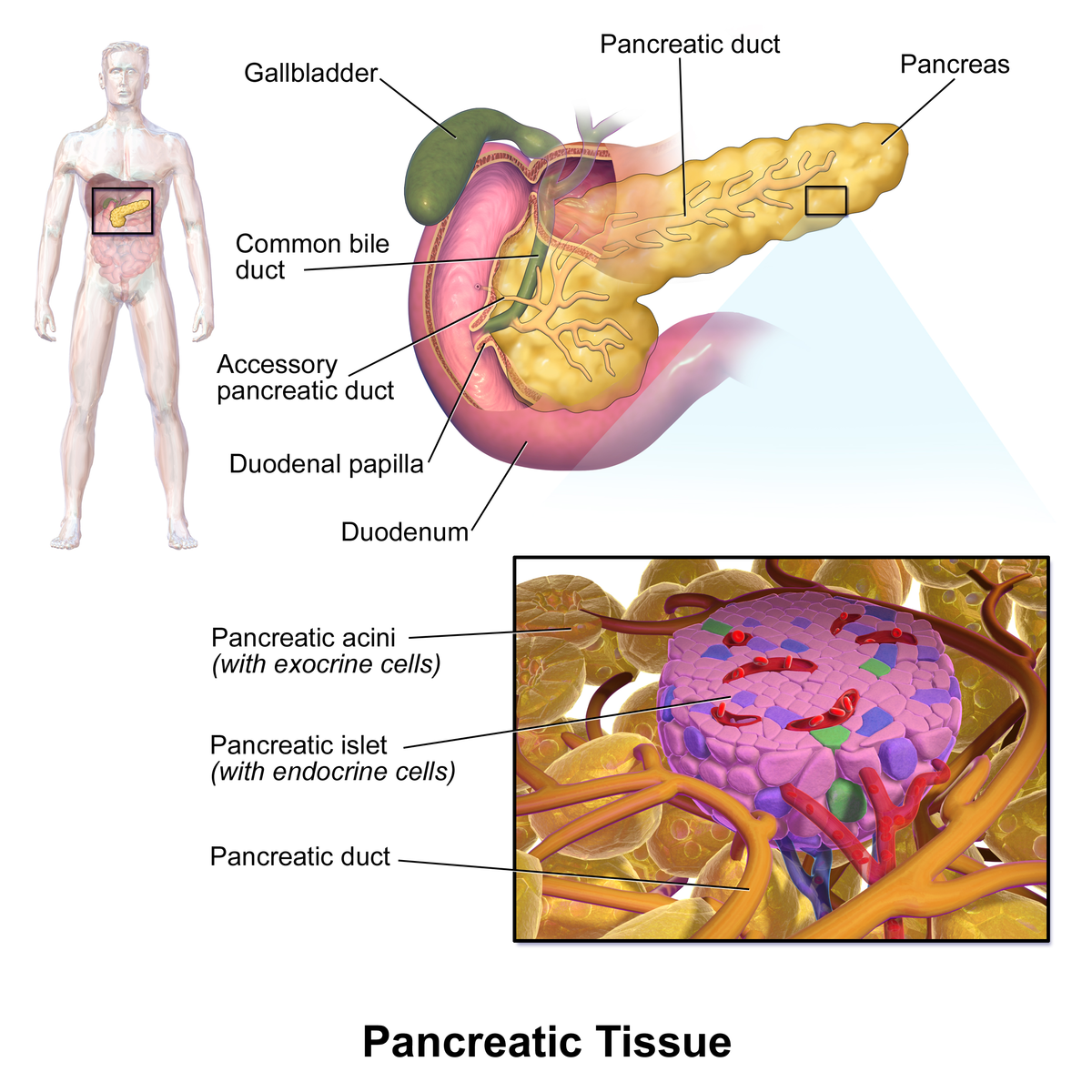


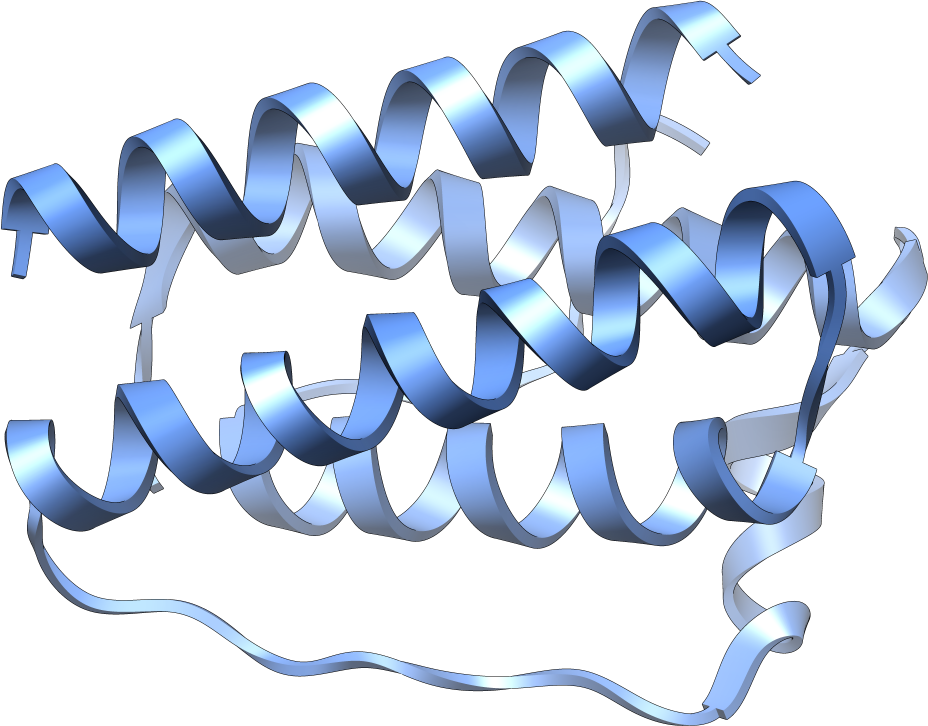

(Redirected from Ozempic)



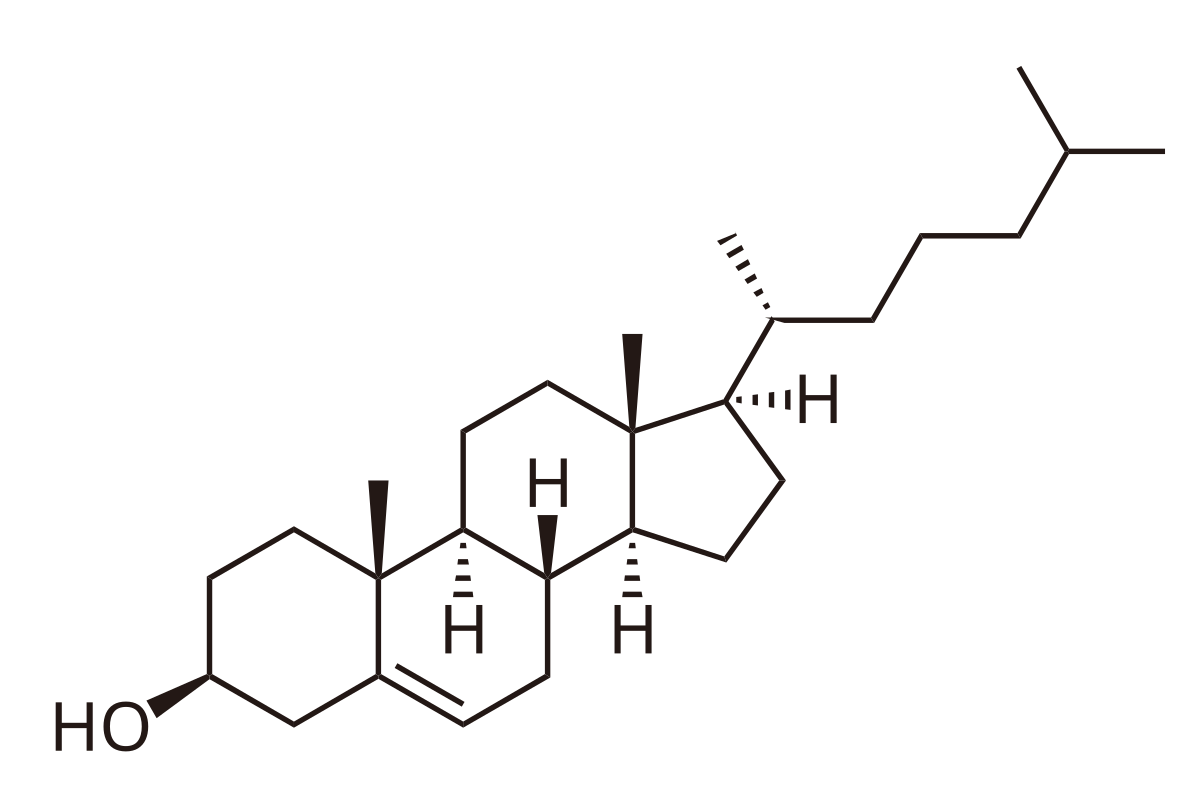


Theme Music
Theme music by
sirobosi frawstakwa







